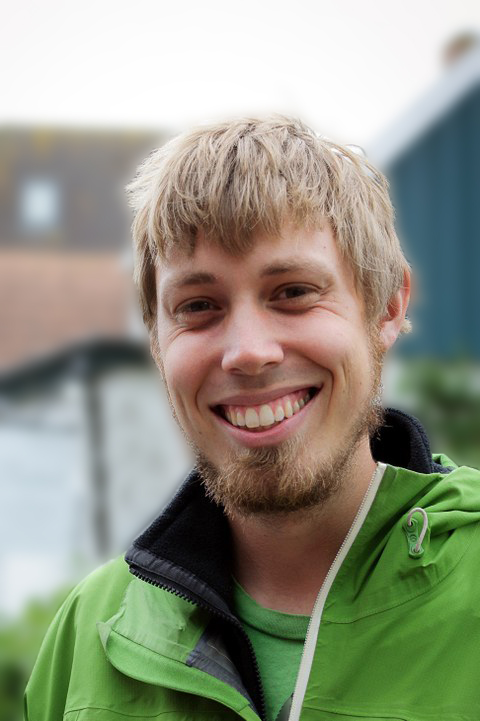Environmental sciences led to Tenure Track Assistant Professor position in grassland biodiversity
As a child Carsten Stefan Malisch never dreamt of working within agriculture. Today he studies how to transform grasslands into diverse ecosystems for the benefit of ruminants, the environment and even the climate at the Department of Agroecology.

As an undergraduate at Cottbus Brandenburg University of Technology Carsten Stefan Malisch focused on environmental management; a subject that is still very important to him as tenure track assistant professor at Department of Agroecology. Yet, the main focus of his research now is on agriculture, a subject that was never really in the cards for the young researcher, at least not until his MSc program took him to Edinburgh in Scotland.
“Looking at my educational or family background, I never really had anything to do with agriculture until my master, where I was affiliated with the Scottish Agricultural College, and that is where it all started, and agriculture has since become the main focus of my professional career”, says Carsten Stefan Malisch.
Making legumes attractive
With his MSc thesis in greenhouse gas emissions from traditional agricultural practices in his hand, Carsten Stefan Malisch went on to pursue a career within research in agricultural practices.
“I was lucky to get a PhD position in Zurich working on how to use underutilized legumes. Legumes have lots of potential to enhance the sustainability of agriculture. The general idea of my PhD was that we have a lot of these plant species that in grasslands could have health benefits for ruminants, such as lower worm burdens and reduction of methane emissions. In other words, we were trying to enhance the agronomic value of some of these legumes, to make them more attractive to farmers,” says Carsten Stefan Malisch.
Diversity in grasslands remained the focus of Carsten Stefan Malisch throughout his PhD and Postdoc years, and his research expanded to include plant biochemistry and agronomic potential.
Assistant professor with a holistic approach
“Maybe it is because my background is environmental science and not agriculture, that I tend to be fascinated with holistic system approaches. I want to look at the whole system and try to enhance it as a whole. That is why the position at Department of Agroecology fits perfectly with my research interests,” Carsten Stefan Malisch says.
At the department he works on how to enhance the diversity of grasslands to enhance the functionality of crop rotations including grasslands, and a year into his position as Tenure Track Assistant Professor, he is happy to have chosen the department in AU Viborg as his workplace.
“AGRO has just that which Denmark is known for, a great working environment. And I get to work with my favorite research topic: an overall system approach which is really important to me,” he says.
Remember the overall picture
Carsten Stefan Malisch is part of the Agricultural Systems and Sustainability Section in Department of Agroecology, and he finds himself to be a part of a group with links to all sections of the department as well as to other departments at Aarhus University.
“My aim is to have other sections look at the overall system, because if you enhance e.g., biodiversity, what might then happen other places. Optimising biodiversity might not always be the best for the climate, there might be some tradeoffs that needs to be considered. So, the bigger picture is always important,” he explains.
Sapere Aude researcher
During his first year at Department of Agroecology Carsten Stefan Malisch has managed to make a name for himself. Among other things he has been awarded a prestigious Sapere Aude grant to investigate how we can reduce methane emissions from ruminants by making them graze on fields with tannin-rich plants.
“I'm really happy to be doing this research at the Department of Agroecology. The department has an excellent track record at solving problems in agricultural systems at all scales, which is also shown by the department's research sections, which includes the newly established LandCraft Pioneer Center. In my view, these research hubs are extremely important if we are to get the most out of small-scale research. The research emphasizes the practical value of the research aiming to make agricultural practices more climate-friendly. The climate agenda is increasingly urgent, and I believe that the Department of Agroecology is an excellent place for researchers like me who want to work interdisciplinary environment to find synergies and ensure that we can promote the green transition in agriculture," he says.
Do you want to work at the Department of Agroecology?We often have a wide range of vacancies, scientific as well as administrative, and we encourage everyone to apply for relevant positions with us. Here you can see the vacancies we have open right now.
|
